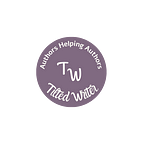Rejection, Red Pens & Party Barges: The Hazards of Being an Author
Remember Frogger? I could play that game for HOURS as a kid — well until the Atari console overheated and I had to fan it off with a Teen Bop magazine or my little brother decided it was his turn to play Pac-Man. If you’re a youngling, you have NO idea what I’m talking about, except Pac-Man has since had a revival or two, so that may ring a bell.
Frogger was an epic game in which players used a vintage joystick controller to try to help frogs cross multiple lanes of traffic and rivers, all while dodging life-threatening hazards like rocks and logs and random gators. As the game progressed, it became more difficult to get your frog to the other side alive.
Sorta Like Being an Author
The life of an author is fraught with hazards. But if I had to recreate the video game, instead of floating logs and gators, writers would have to cross the river while dodging things like stinging rejection letters, uncapped red pens, cutting feedback from colleagues and industry pros, and floating party barges offering distracting things like Netflix and naps. (Yep, THAT’s a party barge if I’ve ever seen one.)
Stick with it Like Frogger, Writer
Back in the Atari days, it was imperative that I get those frogs across the river or road or whatever they were trying to cross at the moment. And I got good. My little frogs were fast-hopping, nimble-footed amphibians with the quick senses they needed to avoid a whole lot of impending doom. (They eventually all succumbed to the game, but we aren’t going to carry the analogy anywhere near that far. Don’t worry.)
The point is, it took me many, many pre-teen hours to conquer the obstacles in the raging Frogger river. But every time I did, I felt pretty damned triumphant. (I know, but try to channel your 12-year-old hormonal self for a moment. Weird things were important.)
When it comes to your writing, you’re a going to get knocked off of a forest full of logs. Red pens will come flying at you, uncapped, all willy-nilly marking up your work — often in ways you don’t agree with. You’ll feel like you’re swimming against the current, and the opposite shore will seem pretty damned distant at times, but if you keep working at it, you WILL get there.
A Note About Rejection
Every writer out there has received rejection letters. So. Many. Rejection. Letters. We often give them names like “love notes” to protect our hopeful author hearts. Even if it’s not a rejection letter, if it’s just a really, really marked up edit of your writing, it stings. It stings like whatever that stuff was that my grandma used to spray on my scrapes and cuts as a kid. There’s no way to make it feel great, but, there is a way to look at it from a different perspective.
Take a moment. Breathe. Then read the feedback again, preferably when you’re alone and can really focus on what’s being said. There are some really important things you need to know about rejection letters. Specifically, there are FOUR important reasons it’s good for us to receive them, learn how to handle them, and best of all, figure out how to get to the other side of the river feeling even better about the work we’ve done:
1. If you got one, you’re lucky. You read that correctly, so wipe your tears, clean up the snot, and focus. Many agents and publishers only send form letters, so if you’re looking at a rejection letter that gives you actual feedback on your submission, you’re looking at gold! You have been gifted insights from a professional in the industry about why your book wasn’t chosen. Take that information and figure out what you can do next.
2. A rejection letter means you are an author. Do you know how many people want to be authors and never actually finish their work? Tons of them. You finished your book! You sent your work to someone to be considered for publication! You are miles ahead of where you were this time last year. Keep going. Keep writing. Don’t let a single obstacle or one piece of feedback stop you from reaching your goals.
3. It’s not personal. Your writing is personal to you, but once you turn it over to someone else, that’s when it’s time to let go of a lot of that personal attachment. Other professionals who look at your work will assess it with a detached eye. They are looking for plotline, grammar, cohesiveness, flow, so many things. No one is looking to purposely hurt your feelings, but they won’t hold back when there’s work to be done either.
4. Rejection pushes you to get better. Most of us are a lot alike. We don’t like to fail, and even though getting a rejection letter is not a failure, we often see it like that. And we don’t like it. We tend to dig our heels in even deeper, fix the problems with our writing, and go back for more feedback. We’re hardwired that way as authors. Welcome to the club!
Keep Hopping
We all get rejections. From peers. From publishers. From readers. Keep on keepin’ on, little frog. You’ll make it past all the obstacles and hop safely onto that riverbank if you just keep working, reaching out, sticking with it, and WRITING.
Keep putting words on paper and creating stories that need to be told. After all, you’re the only one who can tell your unique stories.
